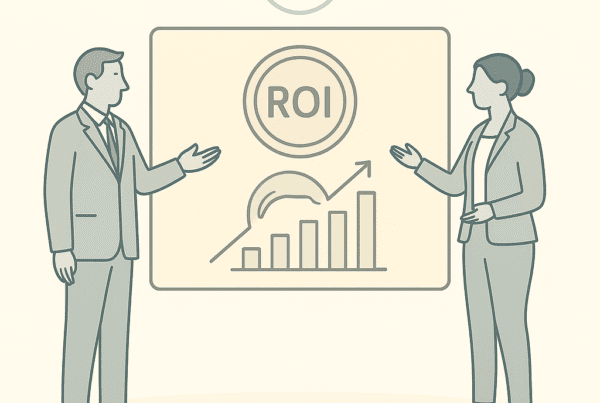Selling your St. Louis fertility and IVF practice is a significant milestone, likely the most important financial decision of your career. The market is active, patient demand is growing, and sophisticated buyers are showing increasing interest in high-performing specialty clinics like yours. However, a successful exit requires a level of strategic planning that goes beyond typical business sales. This guide provides a clear overview of the market, the process, and the key factors you need to consider to protect your legacy and maximize your outcome.
Market Overview
The U.S. fertility market is a robust and growing sector, with a market size exceeding $7 billion. This growth is fueled by consistent and increasing patient demand for IVF and other advanced reproductive technologies. For practice owners, this translates into a favorable climate where buyers, including private equity groups and larger strategic health systems, are actively seeking to invest in quality practices.
Here in St. Louis, the market has its own distinct advantages. Local fertility centers have built a strong reputation, often reporting success rates that surpass national averages. This reputation for clinical excellence makes St. Louis-based practices particularly attractive to buyers. They are not just acquiring a business; they are investing in a recognized and respected clinical operation in a stable metropolitan area.
Key Considerations
A successful sale involves more than just a good price. You must weigh several factors that will shape the future of your practice and your personal transition.
Navigating the Buyer Landscape
The buyer you choose has a major impact on everything from the deal structure to the future culture of your clinic. A sale to a local physician will feel very different from a partnership with a private equity firm. Each path has unique implications for your staff, your clinical autonomy, and your financial outcome. Understanding the motivations of each buyer type is the first step toward finding the right fit for your goals.
The Unique St. Louis Regulatory Environment
Missouri’s legal stance that life begins at conception creates a layer of complexity for IVF providers in the state. While the full impact continues to unfold, sophisticated buyers will have questions about this. Navigating these conversations requires careful preparation and a clear strategy to address potential concerns and demonstrate the long-term stability of your practice.
Market Activity
The healthcare market is currently defined by a trend of consolidation, and fertility is no exception. We are seeing a significant increase in transaction activity driven by private equity firms and large strategic buyers looking to build regional and national platforms. These groups are drawn to the strong profit margins and growing demand within the fertility sector.
For an independent practice owner in St. Louis, this creates a window of opportunity. These well-capitalized buyers are often willing to pay premium valuations for established practices with strong reputations. They are looking for platforms to build upon. Selling in this environment is less about “listing” your practice and more about running a competitive process to attract the right partner who will value your clinical success and growth potential.
The Sale Process
Many physicians are surprised to learn that selling a practice typically takes 6 to 12 months from start to finish. Proper preparation should begin even earlier. An organized process not only protects your confidentiality but also creates the competitive tension needed to achieve an optimal outcome. While every sale is unique, the journey generally follows four key stages.
- Preparation and Valuation. This initial phase involves organizing your financial and operational documents and obtaining a comprehensive, third-party valuation to understand your practice’s true market worth.
- Confidential Marketing. Your advisor confidentially presents the opportunity to a curated list of qualified buyers who have been vetted to be a good fit for your practice.
- Negotiation and Due Diligence. After selecting a preferred buyer, you negotiate the key terms of the deal in a Letter of Intent (LOI). This is followed by the buyer’s deep dive into your financials, operations, and legal standing, known as due diligence.
- Closing and Transition. Once due diligence is complete, definitive legal agreements are signed, the transaction is funded, and you begin the post-sale transition plan.
Valuation
How much is your fertility practice worth? The answer is more complex than a simple revenue multiple. Sophisticated buyers value your practice based on a key metric: Adjusted EBITDA (Earnings Before Interest, Taxes, Depreciation, and Amortization). This figure represents your true cash flow by adding back one-time or owner-specific expenses to your stated profit.
Fertility practices typically command higher valuation multiples than many other specialties due to high-margins and strong demand. However, maximizing that multiple starts with presenting your financials in the language buyers speak.
Consider this simple example:
| Metric | Your Books | Buyer’s View |
|---|---|---|
| Stated Net Profit | $400,000 | $400,000 |
| Owner Salary (Above Market) | – | + $100,000 |
| One-Time Legal Fee | – | + $25,000 |
| Adjusted EBITDA | $400,000 | $525,000 |
This $125,000 difference in Adjusted EBITDA could translate to an additional $1 million or more in your final sale price. An accurate valuation is the foundation of a successful exit strategy.
Post-Sale Considerations
The structure of your sale agreement has profound, long-term implications that go far beyond the closing date. Thinking through these aspects in advance is critical to ensuring the deal aligns with your personal and financial goals. A well-crafted deal protects what you’ve built and sets you up for the future.
Key areas to plan for include:
Your Future Role. Do you want to continue practicing for several years, or are you ready to retire? Your answer will influence whether the deal includes an earnout structure or an opportunity for you to “roll over” some of your equity, giving you a chance for a second payday when the new entity is sold again.
Your Staff and Legacy. A major concern for most owners is the well-being of their dedicated team. The terms of the sale can include provisions to protect your staff and ensure the clinical culture you’ve built is preserved.
Your After-Tax Proceeds. The way a deal is structured (as an asset sale vs. an entity sale) has significant tax consequences. Planning for tax efficiency from the very beginning can dramatically increase the amount of money you actually take home.
Frequently Asked Questions
What is the current market outlook for selling a Fertility & IVF practice in St. Louis?
The fertility market in St. Louis is robust and growing, with strong patient demand and increasing interest from private equity groups and strategic health systems. Local practices benefit from a reputation of clinical excellence, often surpassing national success rates, making them attractive to buyers.
What are the key stages involved in selling a Fertility & IVF practice?
Selling a practice typically takes 6 to 12 months and follows these stages:
- Preparation and Valuation – Organizing documents and obtaining a third-party valuation.
- Confidential Marketing – Presenting the opportunity to qualified buyers.
- Negotiation and Due Diligence – Agreeing on deal terms and buyer’s review of practice.
- Closing and Transition – Signing agreements, funding the transaction, and planning the transition.
How is the valuation of a Fertility & IVF practice determined?
Valuation is based primarily on Adjusted EBITDA, which reflects true cash flow by adding back one-time or owner-specific expenses to the reported profit. Fertility practices often command higher multiples due to their profitability and strong market demand.
What impact does Missouri’s regulatory environment have on selling a Fertility & IVF practice?
Missouri’s legal stance that life begins at conception adds complexity for IVF providers. Sellers must prepare to address buyer concerns around this regulation and demonstrate the long-term stability of their practice in this context.
What post-sale factors should owners consider when selling their Fertility & IVF practice?
Owners should plan for their future role, the well-being of their staff, and after-tax proceeds. Deciding whether to retire or continue working affects deal structure. Sale terms can protect staff and clinical culture, and choosing asset vs. entity sale impacts tax outcomes.



